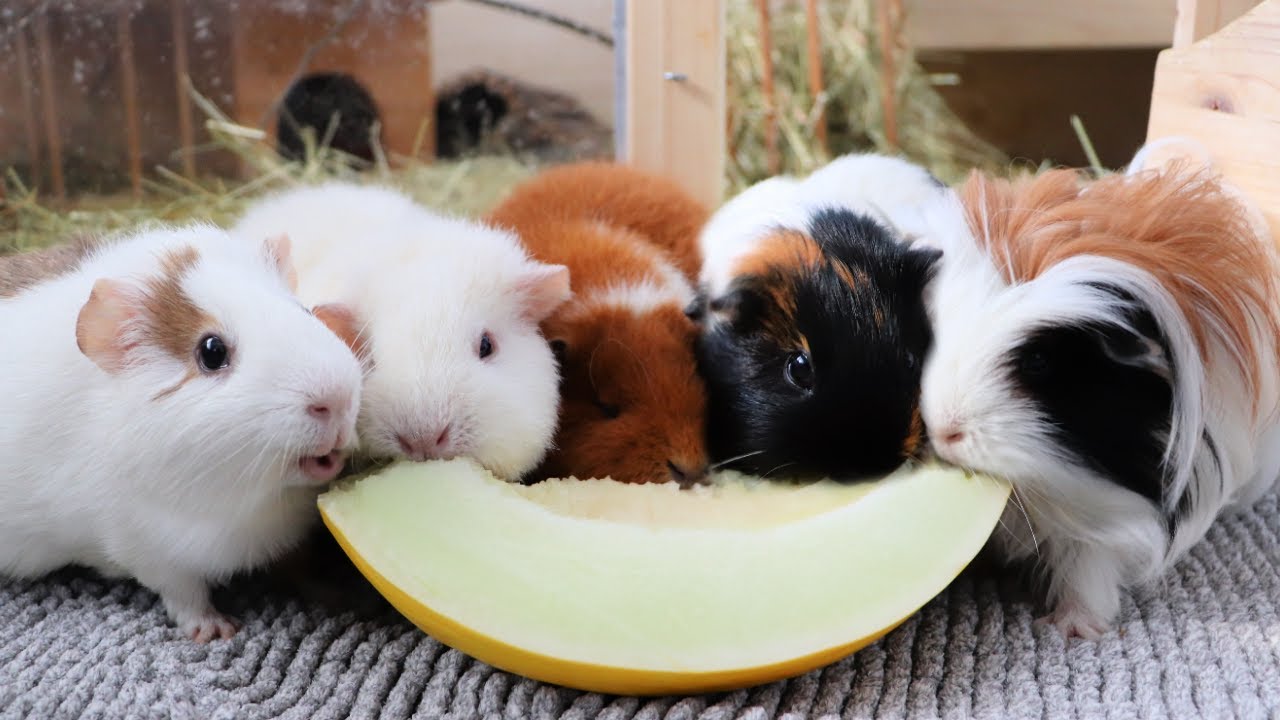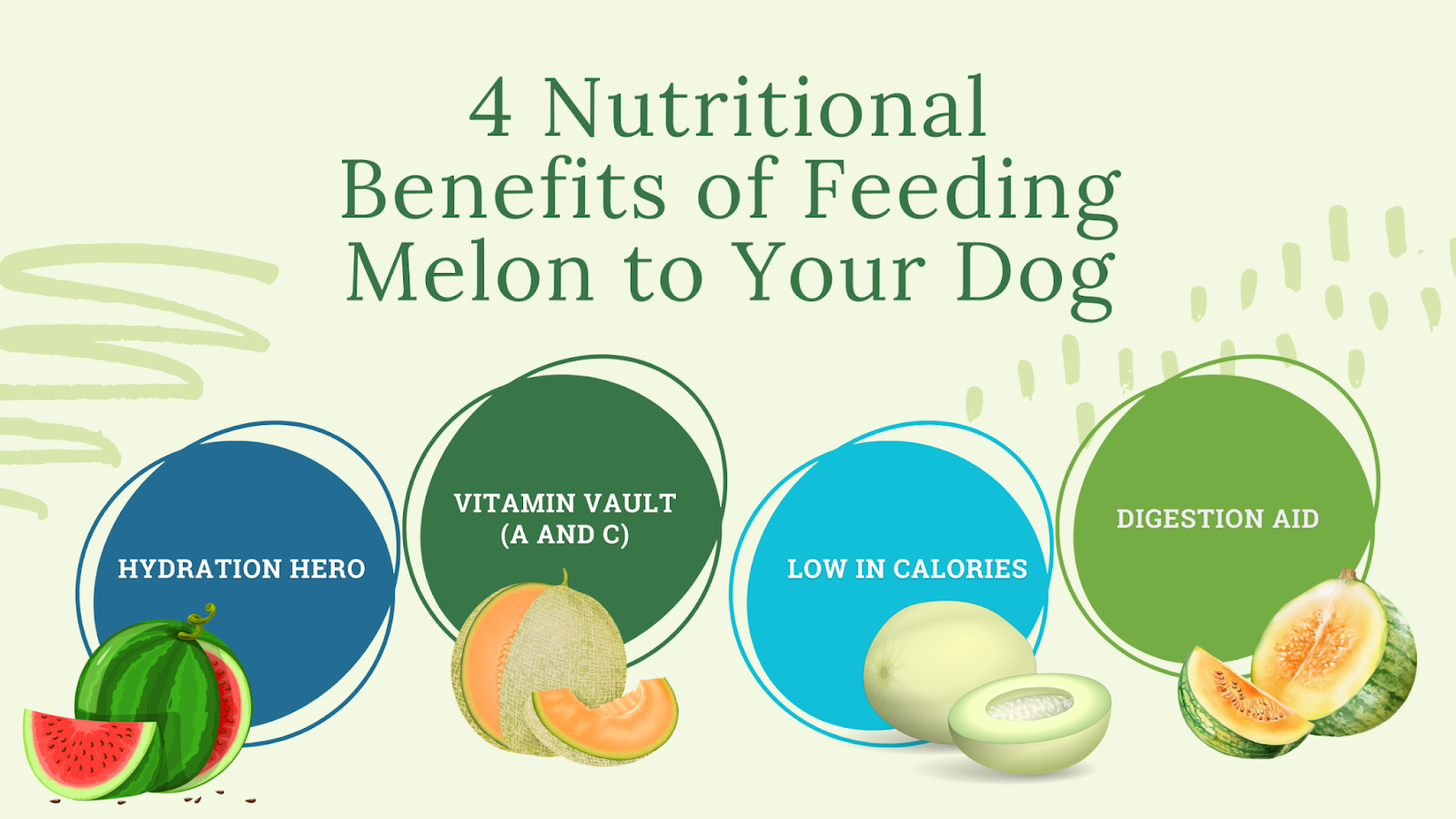Key Takeaways
- Honeydew melons are safe for cats and dogs according to the ASPCA, and are categorized as non-toxic.
- This fruit is rich in beta-carotene and vitamin C, which can support your pet’s health.
- Honeydew should be given in moderation, making up less than 10% of a pet’s daily caloric intake.
- Comparatively, honeydew has a milder taste and less sugar than cantaloupe and watermelon.
- Choose organic honeydew to avoid pesticides, and ensure it’s ripe for the best taste.
Are Honeydew Melons Safe for Cats and Dogs?
As pet owners, we often wonder if the foods we enjoy are safe for our furry friends. Honeydew melon is a refreshing summer treat for us, but is it safe for our pets? The good news is, yes, honeydew melons are safe for both cats and dogs. According to the American Society for the Prevention of Cruelty to Animals (ASPCA), honeydew melons are non-toxic to pets, including horses.
“Can Dogs Eat Honeydew? Human Food for …” from www.kinship.com and used with no modifications.
ASPCA’s Take on Honeydew Melons
The ASPCA, a trusted authority on pet safety, assures us that honeydew melons pose no toxic threat to our pets. This is comforting for pet owners who want to share this juicy fruit with their animals. However, it’s important to remember that moderation is key. While honeydew is safe, it should not replace a balanced diet for your pet.
“Guinea Pigs Eating Honeydew Melon For …” from www.youtube.com and used with no modifications.
Non-Toxicity of Cucumis Melo to Pets
Honeydew melon, scientifically known as Cucumis melo, is a part of the melon family. Its non-toxic nature makes it a safe choice for pets, unlike some other fruits that can be harmful. For instance, grapes and raisins are toxic to dogs and should be avoided. With honeydew, you don’t have to worry about such risks, but portion control is essential.
Potential Health Benefits for Pets
Beyond its safety, honeydew offers several health benefits for pets. It’s packed with nutrients like beta-carotene and vitamin C, which can support overall health. Beta-carotene is converted into vitamin A in the body, promoting good vision and a healthy immune system. Vitamin C is a powerful antioxidant that can help combat free radicals and boost immunity.
Additionally, honeydew contains polyphenols and flavonoids, which have anti-inflammatory properties. These compounds can help reduce inflammation and support your pet’s health. However, these benefits are only realized when honeydew is fed in moderation and as part of a balanced diet.
Guidelines for Safe Consumption
When feeding honeydew to your pets, there are a few guidelines to follow to ensure their safety and enjoyment. For more information on non-toxic plants, you can check out this guide on ASPCA non-toxic plants.
- Always wash the fruit thoroughly to remove any pesticides or dirt.
- Remove the seeds and rind, as these can pose choking hazards or cause digestive issues.
- Cut the fruit into small, manageable pieces to prevent choking.
- Monitor your pet for any signs of allergic reactions or digestive upset after introducing honeydew.
Most importantly, remember that treats like honeydew should make up less than 10% of your pet’s daily caloric intake. This ensures they receive all the necessary nutrients from their regular diet.
Taste and Nutritional Value Compared to Other Melons
Honeydew melons have a unique taste and nutritional profile that sets them apart from other melons. When compared to cantaloupe, watermelon, and canary melons, honeydew offers a milder, sweeter flavor that many pets enjoy. This makes it an appealing choice for those looking to introduce new fruits to their pet’s diet.
“Feeding Melon to Your Dog …” from www.volharddognutrition.com and used with no modifications.
Taste Profile of Honeydew, Watermelon, Cantaloupe, and Canary Melons
Honeydew melons are known for their subtle sweetness and smooth texture, which makes them a delightful treat for both humans and pets. Unlike the more pronounced musky flavor of cantaloupe, honeydew offers a mild and delicate taste that pairs well with a variety of foods. Watermelon, on the other hand, is distinctly juicy and refreshing, with a sweetness that is slightly more pronounced than honeydew.
Canary melons are a bit different, boasting a slightly tangy flavor with a hint of pear-like sweetness. This variety is less common but offers a unique taste experience. When choosing a melon for your pet, consider their taste preferences and how the fruit’s flavor might complement their usual diet. Remember, the goal is to provide a treat that’s not only safe but also enjoyable for your furry friend.
Nutritional Content: Vitamins and Antioxidants
Each type of melon brings its own nutritional benefits to the table. Honeydew is rich in vitamin C and contains beta-carotene, both of which are essential for maintaining a healthy immune system in pets. These antioxidants help combat free radicals and reduce inflammation, promoting overall health.
In comparison, cantaloupe is known for its high vitamin A content, which supports good vision and skin health. Watermelon, while lower in vitamins A and C, is an excellent source of hydration due to its high water content. Canary melons also provide vitamin C, along with a unique set of antioxidants that support health in different ways. When selecting a melon for your pet, consider their specific health needs and how these nutrients might benefit them.
Comparing Sugar Content Across Different Melons
When it comes to sugar content, honeydew is relatively moderate compared to other melons. It contains less sugar than cantaloupe, making it a suitable option for pets that might be sensitive to sugar intake. Watermelon, despite its refreshing taste, has a higher sugar content, which is something to keep in mind if your pet is prone to weight gain or has dietary restrictions.
Canary melons also have a moderate sugar level, similar to honeydew. It’s important to monitor your pet’s sugar intake to prevent any potential health issues, such as obesity or diabetes. By understanding the sugar content of different melons, you can make informed choices about which fruits to include in your pet’s diet.
Gardening Tips for Growing Honeydew Melons
Growing your own honeydew melons can be a rewarding experience, especially if you enjoy fresh, homegrown produce. To start, you’ll need to ensure that your garden provides the right conditions for honeydew to thrive. These melons require warm temperatures, plenty of sunlight, and well-drained soil to grow successfully.
“Since everyone here is confused about …” from www.reddit.com and used with no modifications.
Melon Type | Optimal Growing Temperature | Sunlight Requirement | Soil Type |
|---|---|---|---|
Honeydew | 70-85°F (21-29°C) | Full Sun | Well-drained, sandy loam |
Cantaloupe | 75-85°F (24-29°C) | Full Sun | Loamy, rich in organic matter |
Watermelon | 70-90°F (21-32°C) | Full Sun | Sandy, well-drained |
Canary Melon | 70-85°F (21-29°C) | Full Sun | Loamy, well-drained |
Most importantly, when planting honeydew, space the seeds about 18 inches apart in rows that are 6 feet apart. This spacing allows the vines to spread and access the nutrients they need. Watering is crucial, especially during dry spells, but be cautious not to overwater as this can lead to root rot.
Planting and Growing Conditions
For optimal growth, plant honeydew seeds after the last frost date in your area. This ensures that the soil is warm enough for germination. If you’re starting seeds indoors, do so about four weeks before the last expected frost. Transplant the seedlings outside once the danger of frost has passed and the soil has warmed.
Ripening Process for Optimal Flavor
To achieve the best flavor, allow honeydew melons to ripen fully on the vine. A ripe honeydew will have a creamy yellow color and a slightly waxy feel. It should also have a sweet aroma at the blossom end. Avoid picking melons that are still green, as they won’t ripen properly off the vine.
Common Challenges and Solutions for Amateur Gardeners
Growing honeydew melons can come with its own set of challenges. Pests such as aphids and squash bugs can be problematic, but they can be managed with natural predators like ladybugs or by using insecticidal soap. Fungal diseases, such as powdery mildew, can also affect your plants. To prevent this, ensure good air circulation by spacing plants properly and watering at the base to keep foliage dry.
Besides that, regular monitoring and maintenance will help you catch any issues early and keep your plants healthy. With patience and care, you can enjoy a bountiful harvest of delicious honeydew melons.
Frequently Asked Questions
When it comes to feeding honeydew melon to pets, there are several common questions that pet owners often have. Here, I’ll address some of these to help you make informed decisions about including honeydew in your pet’s diet.
Can small dogs enjoy honeydew melon?
Absolutely! Small dogs can enjoy honeydew melon just like larger breeds. The key is to offer it in small, bite-sized pieces to prevent choking. Start with a small amount to see how your dog reacts, and always monitor them for any signs of digestive upset. For more information on safe edible plants for pets, check out this guide.
“Can Dogs Eat Honeydew? | Canine Journal” from www.caninejournal.com and used with no modifications.
How can I safely introduce honeydew to my cat’s diet?
Cats can be a bit more particular about their diet compared to dogs. When introducing honeydew, start by offering a tiny piece to see if your cat shows interest. Cats often rely on scent and texture, so they may be curious about this new treat. For more information on safe plants for pets, check out this guide on ASPCA non-toxic plants.
- Begin with a small piece to test their reaction.
- Observe for any allergic reactions or digestive issues.
- If your cat enjoys it, you can occasionally offer it as a treat.
Most importantly, ensure that honeydew is just a small part of their overall diet and doesn’t replace their regular meals.
Are there any side effects if my pet eats too much honeydew?
While honeydew is safe for pets, consuming too much can lead to digestive issues such as diarrhea or upset stomach. This is because of the high water and fiber content in the fruit, which can be overwhelming in large quantities.
To prevent any issues, always serve honeydew in moderation and as part of a balanced diet. If you notice any adverse reactions, stop feeding honeydew and consult your veterinarian.
How does honeydew compare with other fruits for pet consumption?
Compared to other fruits, honeydew offers a unique balance of sweetness and nutritional benefits. It’s less sugary than fruits like bananas and grapes, making it a safer choice for pets with dietary restrictions. However, fruits like apples and blueberries also provide essential vitamins and antioxidants.
When selecting fruits for your pet, consider their specific health needs and dietary preferences. Honeydew can be a great addition to a varied diet, offering hydration and nutrients without the high sugar content found in some other fruits.
What signs should I watch for if my pet has an adverse reaction?
If your pet has an adverse reaction to honeydew, you may notice symptoms such as vomiting, diarrhea, or lethargy. In rare cases, there could be signs of an allergic reaction, like itching or swelling. For more information on pet-safe plants, you can explore the ASPCA non-toxic plants list.
In such cases, discontinue feeding honeydew immediately and consult your veterinarian. They can provide guidance and determine if further treatment is necessary. Monitoring your pet closely after introducing any new food is crucial to ensuring their health and safety. For more information on non-toxic plants for pets, explore our resources.
“Always introduce new foods gradually and in moderation to avoid overwhelming your pet’s digestive system. For instance, you can check if pets can eat honeydew safely before adding it to their diet.”
By following these guidelines and being attentive to your pet’s needs, you can safely include honeydew melon as a refreshing treat in their diet. Remember, moderation is key to maintaining a balanced and healthy diet for your furry companions.










